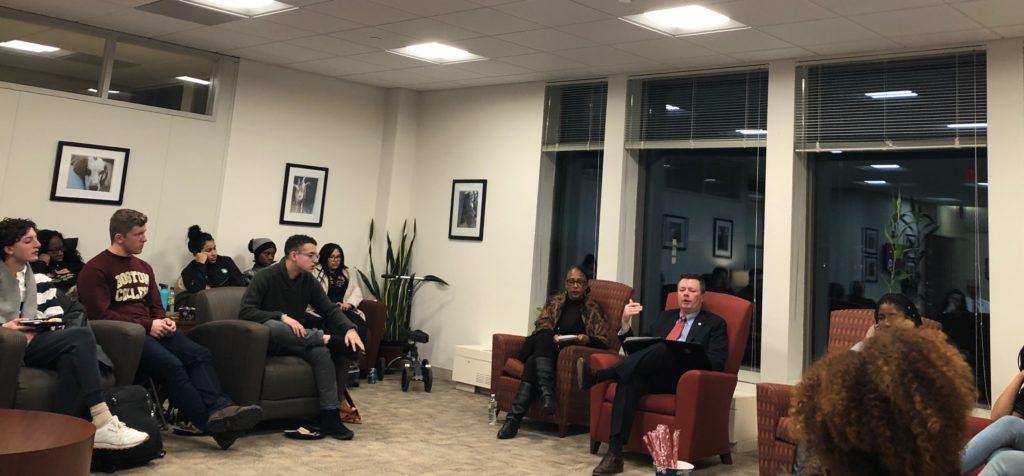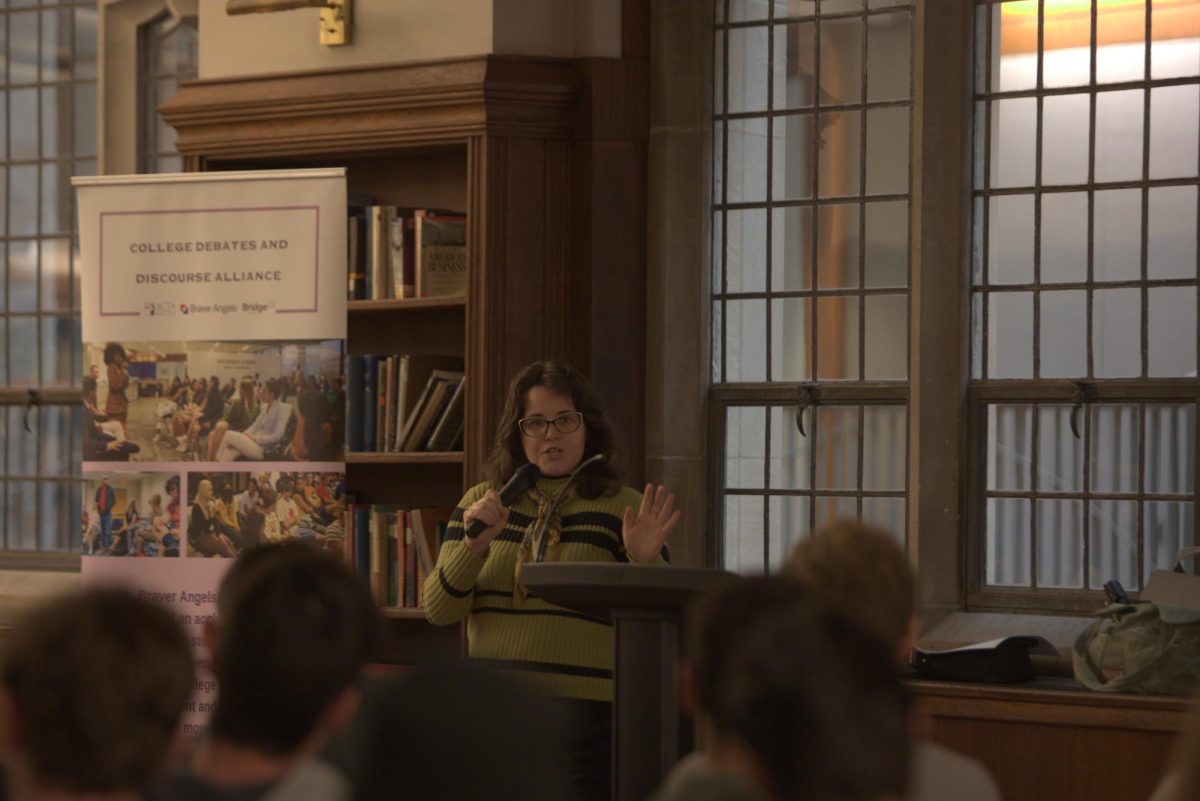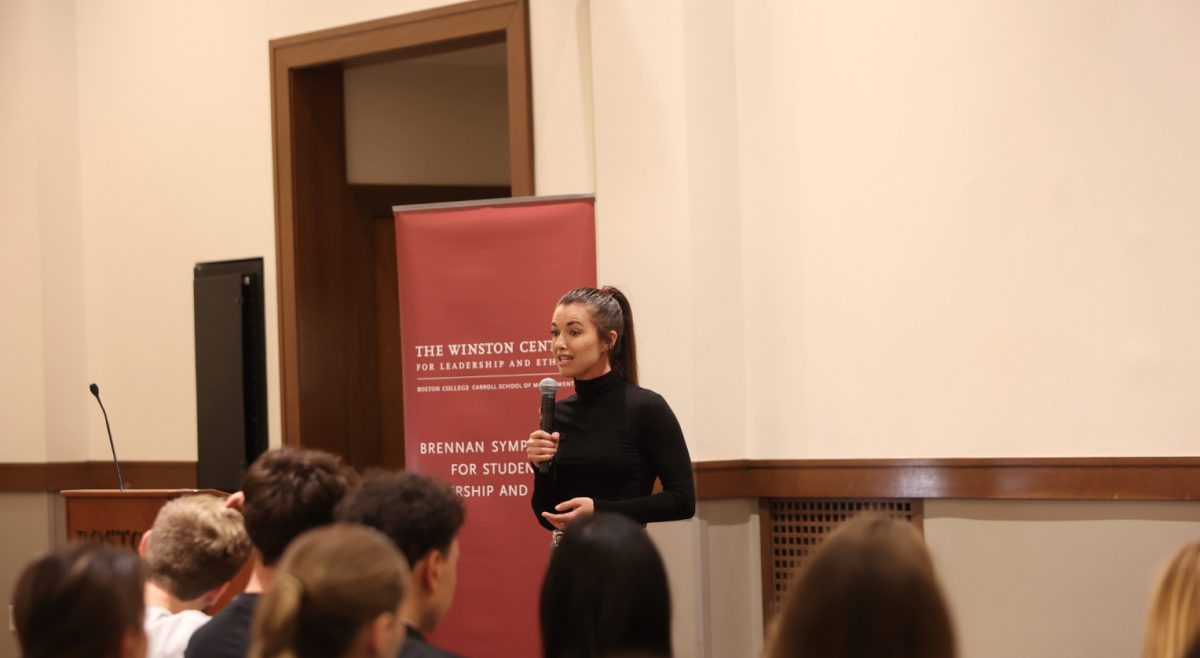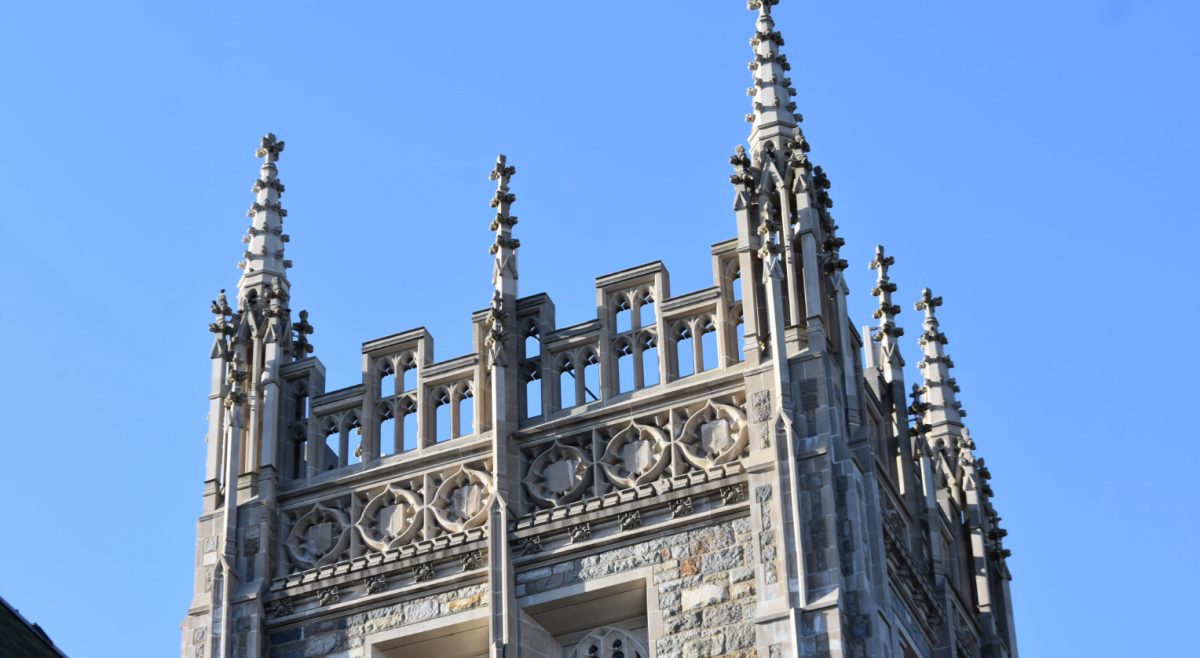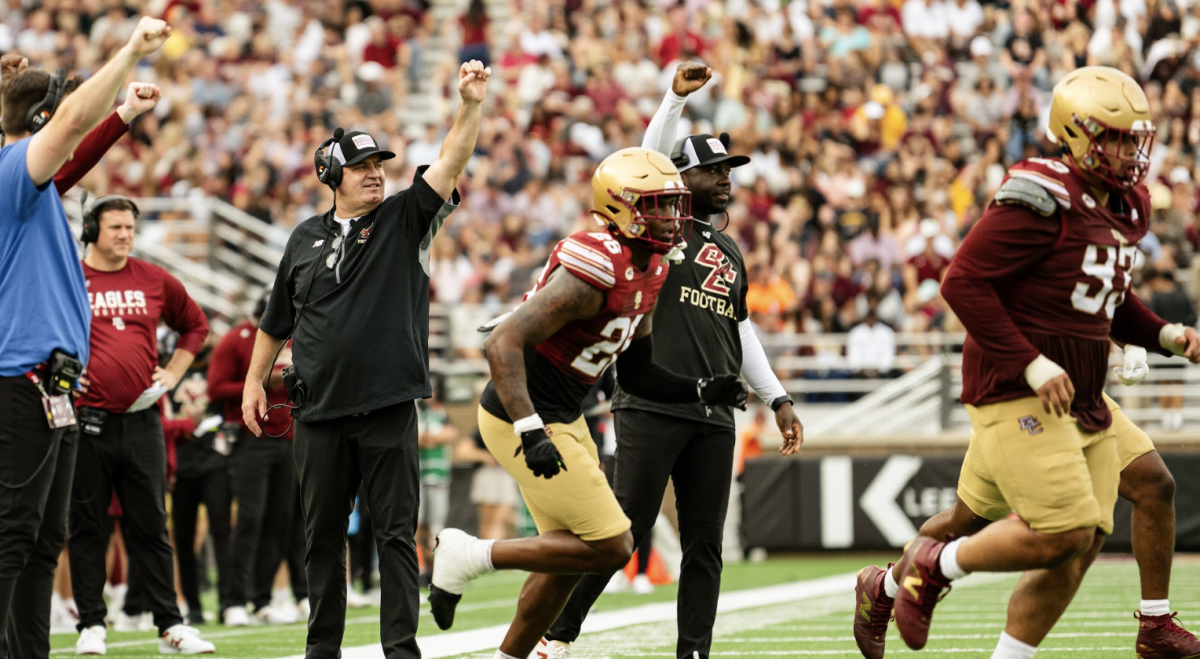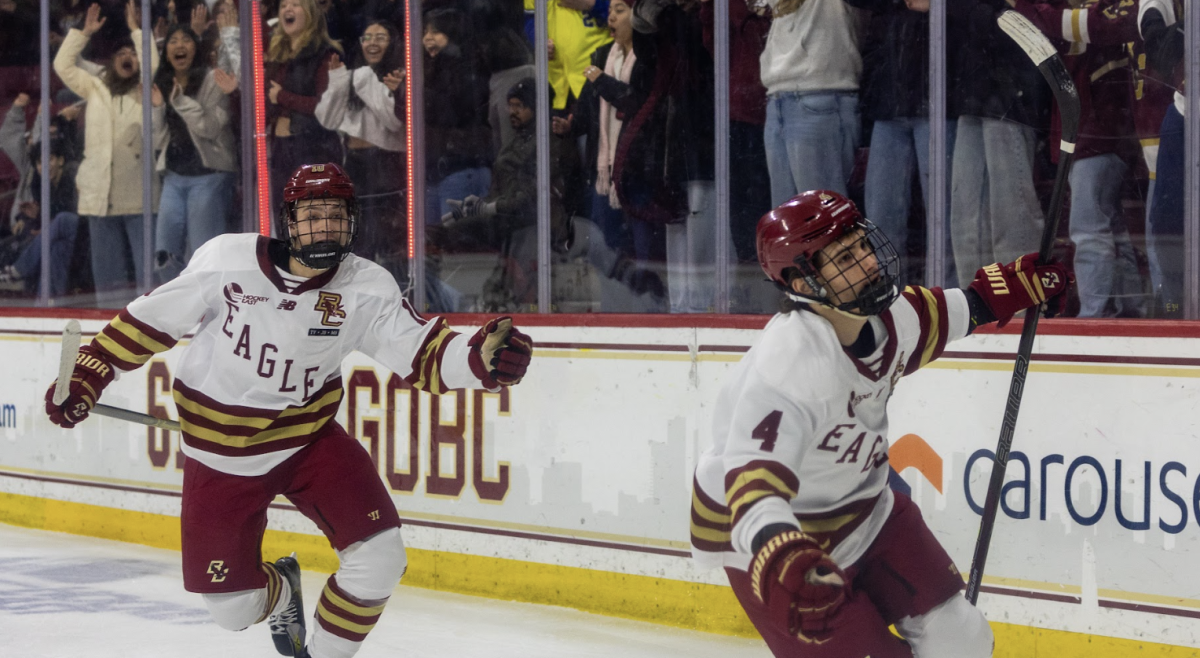Boston College interim Vice President of Student Affairs Joy Moore and Executive Vice President Michael Lochhead met with student leaders to discuss issues surrounding diversity and inclusion at BC Wednesday evening. Dean of Students Tom Mogan and Rev. Michael Davidson, S.J., director of the Thea Bowman AHANA and Intercultural Center, were also in attendance.
The gathering featured discussions about how administrators and students respond to racist incidents and dealing with institutionalized racism, both within BC and on a national level. Students and the panelists also discussed whether or not communication lines between students, administrators, and trustees are open enough to deal with issues plaguing BC.
Moore and Lochhead began by checking in with how the students had been doing since the racist incident occured in December, when Michael Sorkin, CSOM ’21, vandalized Welch Hall with racist epithets. Sorkin is currently summarily suspended from the University.
“It feels like everyone forgot that it happened,” one student said.
Another said that people don’t acknowledge the institutionalized, historic, and systemic racism at BC and that it felt as if no one was addressing the problem. She said that while there is racism everywhere, racism at BC is different, because it seems like the student body finds the incident that happened in December to be acceptable. Change won’t happen unless there is a cultural shift, she said.
“Unfortunately, racism is going to outlive us all,” Moore said in response, noting that students and faculty must nonetheless try to persevere in trying to make the world more just.
Another student told Moore and Lochhead that when changes regarding diversity and inclusion—such as DiversityEdu and faculty diversification—are being made, she would like to hear about these adjustments as a part of proactive initiatives from the University rather than hearing about them as a part of a reaction to a major racist incident.
“We do have more work to do on the communication side,” Lochhead said, acknowledging that the administration could find better ways to get information out to students and faculty.
He said that part of the reason for the lack of communication was that when administrators are still in the phase of coming up with solutions, they don’t want to oversell or undersell them before they are put into place.
Moore said when students and faculty talk about diversity, the people who should be in the room usually aren’t. She said that the diversity conversation should start at orientation.
“We need to be much more upfront with freshmen and their parents about what this community accepts and doesn’t accept,” she said.
Moore noted that there are some offenses, such as arson, that are grounds for expulsion even when it is a student’s first offense—she said, for her, racism and hatred are on the same level.
Another student said that when incidents occur, he would like to see a statement from an administrator as high up as possible, adding that he knows this is a possibility because of the statement University President Rev. William P. Leahy, S.J., released regarding potential taxes on the University in December 2017.
Lochhead said that, although it may not be what students want to hear, Leahy’s view is that when Moore sends out an email, she is speaking for the University. The student responded that—-while he recognizes Moore is there for the students—with certain incidents, it’s important to hear from the president himself.
The students and administrators also discussed the fact that there isn’t a student representative on the Board of Trustees—the inclusion of one being part of the demands made by the Undergraduate Government of Boston College in response to the racist incident last semester. Students said that they would benefit from a student representative because they would know that their voices are being heard, but Lochhead emphasized that this is a decision that the trustees would have to make for themselves.
Moore said that when the trustees decide to build a new recreation center or residence hall, students should see that these decisions are an example of the board listening to what students are asking for. Lochhead agreed, saying that although it may not be in a way that is as direct as students are requesting, the trustees are taking student voices into account.
Lochhead later noted that the extent to which diversification can happen is not entirely up to BC—for top faculty and students of color, he said, there are many other schools ranked higher than BC that the University is competing against.
“That doesn’t mean that we aren’t working really hard to change that and try to get people to want to be a part of this community,” Lochhead said.
One student brought up how diversity modules are too surface-level to solve the problem. Moore reiterated that DiversityEdu was never intended to be a be-all, end-all solution for diversity issues. One thing the administration has been looking at is a comprehensive four-year, co-curricular program related to diversity, she said.
Lochhead said that, to some degree, DiversityEdu was a knee-jerk reaction to the racist incidents and demonstrations that took place last academic year. BC, he said, needs to take a step back and modify the program so that it is more BC-centric and that students don’t just pass the module by participating in it. He emphasized that it is the administration’s—not the students’—job to figure out a way to make a program that is more meaningful and effective.
One student asked if BC would release a statement acknowledging that systems of oppression exist and saying that work is being done to combat them. Lochhead’s response was that he doesn’t expect there to be any sort of statement such as this—he said that the University was focusing more on using the resources and people they have to solve problems.
The last issue discussed was how the University plans to invest funds in improving diversity-related issues. Lochhead said that the University is looking at increasing the budget for the Thea Bowman AHANA and Intercultural Center and that, while it may not necessarily relate to issues of racial diversity, the University is working on using financial aid to ensure that there is socioeconomic diversity on campus.
Featured Image by Abby Hunt / Heights Editor

